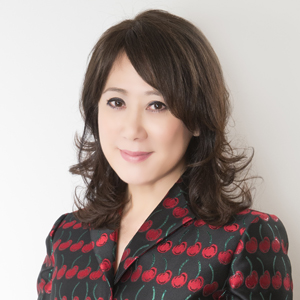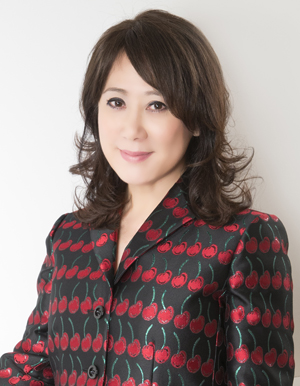08.2019 Leader's Remarks
The invincible rule of experiential marketing is to be People-oriented and disintegrate the customers' thoughts ideologically
Pacific SOGO Department Store Chairman / Sophia C.W. Huang


“Forbes” listed " experiential marketing" as one of the five trends of retail industry this year: studying experience and creating differentiated value are the necessary way for the transformation of physical retail. In addition, according to eMarketer's survey in 2018, as many as 80% of American consumers preferred to shop in physical stores; it is true consumers prefer the high CP value of e-commerce, but they pay more attention to the goods and services in physical shopping. It is true that e-commerce online shopping completely disintegrates the consumption mode. Customers are no longer satisfied with pure shopping. Physical retail must provide the needs that the e-commerce can’t provide (e.g. five senses experience). They should try their best to interact with consumers to make consumers have “feelings” and then take actions. In other words, shopping malls are for “experiencing” instead of "shopping".
Take department stores as an example, the taste experience that can’t be replaced by the Internet has become the leading way. In recent years, the proportion of catering counters has increased from ten to twenty percent to thirty to forty percent. In addition, through the technological experience of AR, VR, 4D and interactive entertainment, the department stores are transformed into multi-experience amusement parks. One-stop shopping mall has become a one-stop enjoying mall. Retail, catering and entertainment are the three major parts of the world's new-style shopping malls, and the retail market has been reshaped.
Experiential economy is prevailing, while experiential marketing mode is constantly innovating and upgrading, such as compound operation. International top brands such as Gucci, Prada, Tiffany , etc, have stepped into catering industry, among which, Gucci Garden, located in the Florence Gallery, combines boutique, art, gourmet food and household decoration to convey brand ideas and create an emotional experience space. In China, 7-11, the leader of the super-merchants, has opened a complex store, which combines six forms of business, such as super-merchants, cosmetics and so on. “Small 7” has evolved into "Big 7", which not only enlarges the target market, but also extends the consumption time and space by means of multi-level consumption experience, so as to increase economic benefits.
In addition to the compound experience, intellectualization is also a new highlight of experiential marketing. Physical stores use technology to consolidate existing advantages and optimize shopping experience. Walmart, the leading retailer which has been actively developing the whole channel in recent years, cooperates with Waymo, a self-driving vehicle, to launch the delivery service "shopping online and picking at stores". Consumers place orders on the Walmart website and then are shuttled by Waymo to the market to pick the goods without getting off. Seamless journey of shopping, combined with intelligent technology to provide service experience, solves the weak points of consumers having no time to park and going into the stores, so that shopping is more convenient and considerate.
Self-service stores are another example of intellectualization. Amazon, an e-commerce giant, has launched as an entity retail store Amazon Go, with the global retail industry intimating it. Self-service stores integrate online and offline consumer data, provide customized goods and services, and upgrade consumer experience towards personalization. Although Amazon Go and other self-service stores are not developing as expected at this stage, under the trend of full-channel retailing, intelligent experience is still the trend of the times.
Experiential marketing is bringing forth new ideas and promoting gamification marketing. There is no other reason: it's fun, so you're willing to experience! Take Nike, the leading global sports brand, as an example, the APP "Nike + Run Club" successfully transformed sports into a "challenging game". In addition to the common function like recording the data of each run and setting personal fitness plans, a number of game-based medals have been developed to challenge ourselves, and can be shared through communities. People can interact with runners to achieve the goal of challenging together.
Although science and technology have progressed a lot, we must return to humanism. Only through emotional communication can we touch people's hearts. Looking around the world, Starbucks, the world's largest coffee chain, is undoubtedly the best one who is good at communicating brand culture through experiential marketing. Starbucks boasts that what it sells is not only coffee, but also the story of "people" and the experience of "heart". Through the biggest global flagship store, Starbucks is applying experiential marketing to the extreme.
In Starbucks, the transmission of brand culture begins with the story of coffee, with the participation of consumers to identification to the process of sharing will maximize the value of experience and then make consumers become fans of Starbucks. In Tokyo, the world's largest Starbucks flagship store opened recently, consumers were willing to queue up for five hours to "experience" a cup of coffee, confirming that the most successful experiential marketing is to win the hearts of consumers!
Science and technology have brought revolutionary subversion and innovation to global retail patterns and consumer behavior. Experiential marketing has lasted for 20 years, but its invincible principle is unfading: people-oriented, disintegrate the customers' thoughts ideologically - only by gaining the position in the consumers’ hearts can you win market share!


















